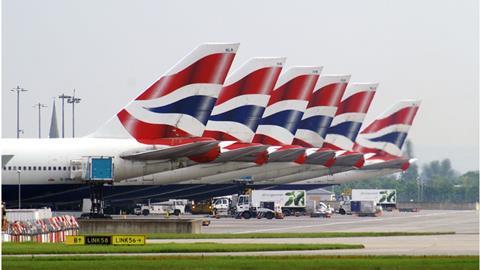The closure of Heathrow Airport last Friday disrupted the supply of over £5.43m of goods, including limited shelf life products such as pharmaceuticals and fresh foods, international delivery expert Parcelhero is warning.
With 70% of all UK cargo by value passing through Heathrow, the chaos resulting from its unexpected closure, caused by a loss of power following a fire at an electricity substation, will impact on UK cargo for days to come, David Jinks,Parcelhero’s head of consumer research, said this week.
“While the disruption to passengers naturally caught most media attention, Heathrow’s closure on Friday also significantly impacted UK trade,” he explained..
Heathrow handles around 48% of all the UK’s air cargo, with around 1.43m tonnes of goods travelling through the airport every year, with around 90% carried in the holds of passenger flights.
Jinks said: “That reliance on passenger services means delayed freight shipments will continue to compete for space with increased passenger luggage demand as people reorganise their schedules over the next few days.”
He added that the actual cost of the disruption will be significant as Heathrow struggles to return its deliveries schedules to normal.
Jinks said: “Even though all Heathrow cargo facilities are now accepting deliveries again, freight facilities at Heathrow and alternative centres at Luton, Stansted and Gatwick could struggle with volumes and scheduling for several days to come.
“Last month, Heathrow handled 120,765 metric tonnes of cargo. The logistics of rerouting and scheduling even a portion of this volume of freight is daunting.”
He added: “As just one example of the disruption caused, IAG Cargo’s website reportedly showed that the company was still unable to accept any freight at Heathrow on Saturday, but was updated on Sunday to show operations had resumed.
“Issues like this created significant demand for trucks to move diverted cargo as the impact on logistics operations across the UK continued.”
Jinks warned that airlines’ cargo centres will experience disruption for several days to come, with priority being given to time-sensitive medicines, perishable goods and urgent express air freight deliveries.
He added: “Of course, all freight that travels by aircraft is time-sensitive, otherwise it would be moved by sea, which is a significantly cheaper mode of freight transport.
“Heathrow handles a huge variety of goods, from parcels and e-commerce to tech and gold bars, and both exports and imports have been disrupted.
“The top three exported products from Heathrow are salmon, books and medicines. The top imports are chemicals that are used in medicines, plastics and perfumes, in addition to perishable products such as vegetables and flowers.”
Jinks said the complex cargo handling network at Heathrow will have had a major impact on global supply chains.
“European and transatlantic trade, in particular, has been impacted by the closure. The final cost of the disruption is likely to total millions of pounds.
“This includes lost perishable items, refuelling and rescheduling aircraft, the idling of equipment and production lines relying on the delivery of just-in-time products and components and the rerouting of goods by road between alternative airports and destinations.”






















